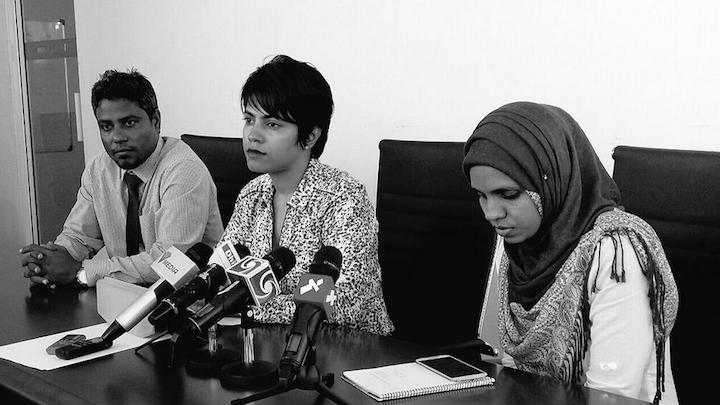The government has banned foreigners from providing photography-related services as well as operating souvenir shops and customs bonded warehouses in a bid to boost youth employment.
Registrar of companies Mariyam Visam told the press yesterday that the ministry will not register foreign investments in the selected fields.
Foreign investments in passenger transfer services and water sports will also be restricted to partnerships with companies with at least a 51 percent stake owned by Maldivians.
“If Maldivians can’t enter these ancillary services in the tourism industry, the economy and standard of living will be adversely affected,” she said.
“Even if we provide many opportunities for foreigners to invest in the Maldives, our main objective is economic development and increasing economic means for Maldivians.”
Most local photographers and souvenir businesses have welcomed the ban. But some have said foreign investments are crucial for small and medium enterprises to thrive.
Some 26.5 per cent of Maldivians aged 15 to 24 are unemployed, according to World Bank statistics from 2013, the most recent figures available.
“Good move”
The secretary general of the Maldives Photography Association, Ahmed Ishan, said the ban would create more opportunities for local photographers.
“There are about 1,500 Maldivian professional photographers in the industry. But Maldivians aren’t allowed on some resorts due to the influence of some [foreign] companies,” he said.
The foreign companies were established in 2012 and primarily employed photographers from Philippines and China, he said. They were often “stationed” at resorts as resident photographers.
“So all the work goes to them,” he added.
He also claimed that some of the photographers had fraudulent work permits.
In January, the economic development ministry ceased issuing work permits for foreign photographers while a ban on foreigners working as cashiers took effect in April.
Last week, the immigration department instructed local businesses to send back migrant workers hired as photographers and cashiers before June 7 and apply for cancellation of employment approvals. The department warned that employers who do not comply will be penalised.
The economic ministry has meanwhile penalised 88 businesses found to employ foreign cashiers.
The ministry will conduct inspections on the new rules and offer a period for foreigners involved in restricted business to leave, Visam said yesterday. Agreements with foreign parties will not be renewed and the ministry will take action against businesses registered under Maldivians but operated by foreigners, she warned.
The souvenir trade
Hassan Zahir, the manager of the Misraab souvenir shop, welcomed the move as a positive step as many Maldivians were involved in the souvenir trade.
“This is an ordinary or medium-sized business, so it’s not good when foreigners come in. Not everyone can be resort owners,” he said.
The restrictions will create job opportunities for young Maldivians in the absence of competition from foreign businesses who have more resources and more capital, Zahir suggested.
However, officials from another souvenir business, who wished to remain anonymous, questioned the effectiveness of the move, noting that foreigners operate the souvenir shops in resorts run by foreign companies.
Maldivians should be allowed the opportunity to run souvenir shops in all resorts, they said.
Meanwhile, Saudhulla Ahmed, secretary general of the Maldives Trade Union, an NGO set up last year for advocacy on behalf of small and medium-sized businesses, told Minivan News that foreign investment was crucial for small businesses to thrive.
Foreign investors had set up enterprises almost exclusively in partnership with Maldivians in the restricted fields, he said
Saudhullah also said the government has impeded small businesses by cutting electricity subsidies and reducing business hours with a 10:00pm closing time.
Local businesses are”living in fear” and lacked security for their investments due to arbitrary measures from the government, he continued.
“We have had complaints from businesses about the customs saying they mistakenly charged too little as duties for goods imported two years ago, and so customs is now asking for MVR230,000 in fines,” he said.
The ministry was imposing restrictions on foreign investments “because they know for sure that investors won’t come to such a frightening place,” he said.
